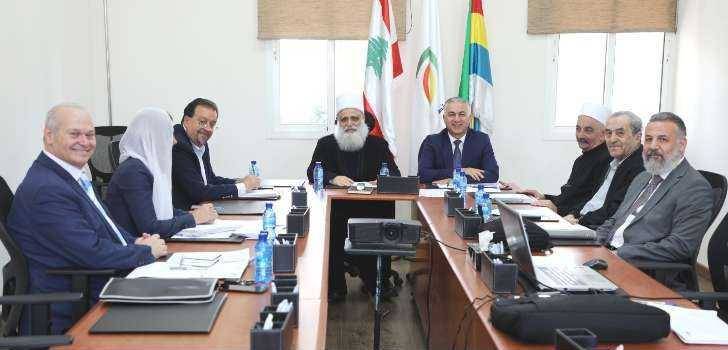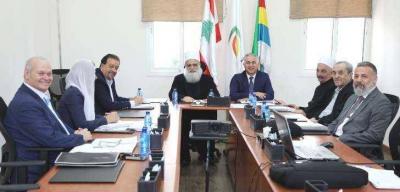The Administrative Council of the Religious Council held its regular meeting chaired by the head of the council, Sheikh Al-Aql of the Druze community, Sami Abi Al-Manna, at the community's headquarters in Beirut.
The council expressed "deep concern over the recent escalations carried out by the Israeli occupation against the Palestinian people and its continuous assaults on Lebanon, which have taken on dangerously significant connotations after the execution of its threats towards Rafah and other Palestinian cities, committing further horrific human massacres in the southern border villages, resulting in immense destruction of homes and property losses, thus increasing the potential for war expansion."
The council called upon international mediators and those interested in Lebanese affairs "to work immediately on halting the rising tensions and defusing the prospect of a wide-ranging war, as Lebanon lacks the capacity to bear its burdens. In this regard, it sees that the implementation of international resolutions, particularly resolution 1701 in all its provisions and the 1949 Armistice Agreement, and consequently empowering the army and security forces to fulfill their roles, is crucial for providing stability, ensuring agreement, and achieving the goals intended by diplomatic and international efforts to resolve the ongoing crisis and prevent dragging the entire region into an all-out war."
Concerning the issue of displaced Syrians and its repercussions, the council called for a "unified national stance towards European countries and the international community, which should stem from the existential, numerical, security, and economic concerns related to the safe return of displaced persons to their homeland, away from divisive factors and incitements on one hand, and international temptations regardless of their nature on the other."
It deemed that "the Lebanese government and parliament must bear full responsibility for the file and its consequences, without being complacent or ignoring the ramifications, which will be dire for Lebanon's situation and the future of its generations, threatening its identity, message, and the features of its diversity."
The council lamented "the decreased expectations and the significant challenges faced in instilling a spirit of optimism regarding constitutional entitlements, and the limited capabilities of officials in resolving the issue of the presidential election from its deteriorating stalemate, thus further weakening the state and diminishing the prestige of official institutions."




